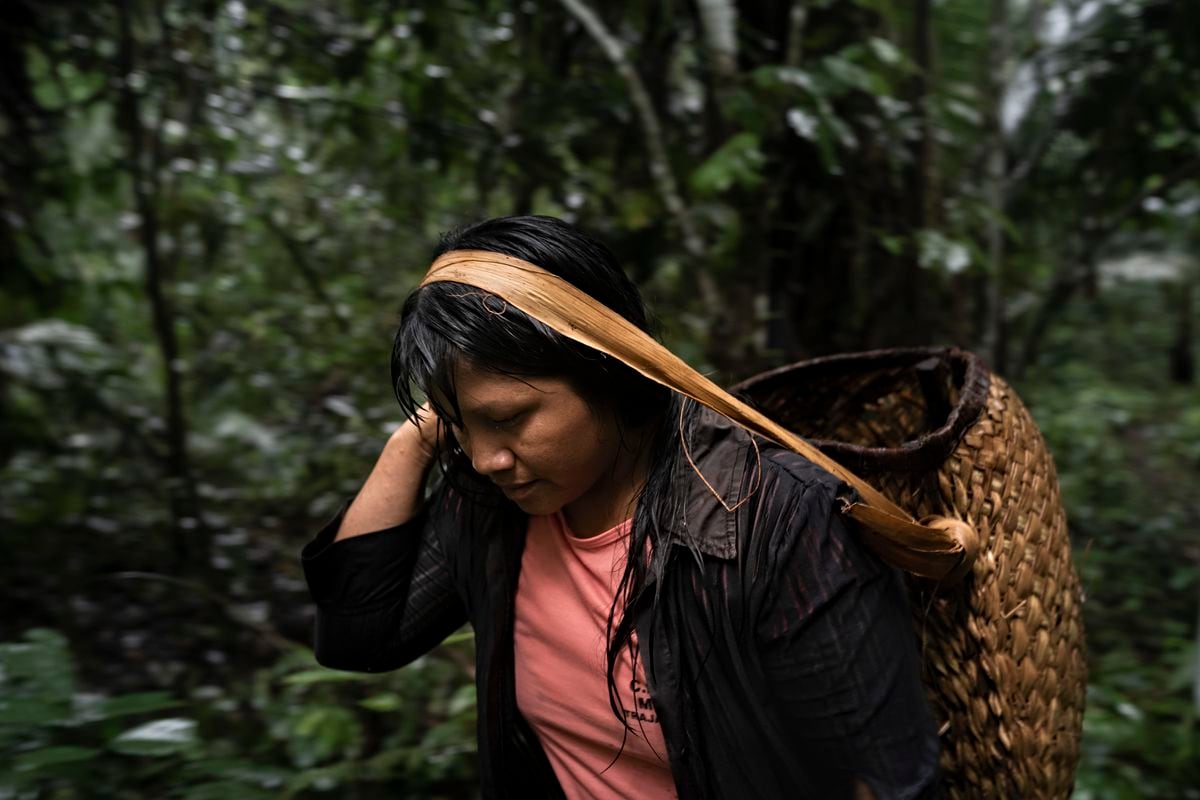Fifteen years.
That is the setback that experts estimate the pandemic has caused in the labor landscape of women in Latin America and the Caribbean.
Of the 23.6 million jobs that they lost at the worst moment of the crisis in the second quarter of 2020, at the end of 2021 some 4.2 million were still missing.
The 26 million men who became unemployed in the covid, however, have already returned "virtually all" to their jobs, according to the latest data published by the International Labor Organization (ILO) last week.
Care, informality and previous unemployment rates are behind gender gaps that are only growing.
When Vinícius Pinheiro, ILO regional director for Latin America and the Caribbean, speaks of inequality, he mentions four gaps and not one, the wage gap, which is the best known (and is already around 23% in the region).
“There is that of participation in the labor force, that of unemployment, that of wages and that of the conditions in which they enter the labor market.
There are four and they are very important ”, he explains through a video call.
Before the pandemic they were already heartbreaking.
“The great effect of this crisis, unlike others like the one in 2008, was the massive departure of the workforce.
We lost almost 5.8 percentage points from 2019 to 2020. That's 49 million jobs between both sexes."
The difference, according to the Brazilian, is the structure of inequity that already existed and that relegated them to more informal jobs and to the service sector;
the most affected and the slowest to recover.
“As vaccination expands and biosecurity policies begin to be carried out, everything is returning to normal, but not yet completely.
The most affected and stagnant continue to be them.
It is an unequal reparation”.
The most affected and stagnant continue to be them.
We are facing an unequal repair
Vinícius Pinheiro, ILO regional director for Latin America and the Caribbean
The ILO report
Latin America and the Caribbean: Gender equality and labor market policies during the pandemic
, which is part of the regional series
Labor Overview in times of covid-19
, some of the public policies necessary to be closer to equity are also pointed out.
For Pinheiro, who calls the combination of care and teleworking a “cheat”, the first necessary measure is to pay for this task.
“We cannot ignore the tremendous care economy.
It is necessary to facilitate that there is a sector that takes care of boys and girls, the elderly, sick people... and that this is an official job and, therefore, dignified and formal.
We must give it the importance it has: it is essential”.
According to the entity it represents, more than 300 million new jobs could be generated in this union, between now and 2035.
The study highlights that the regional participation rate for women, which was around 41% in the early 1990s, had risen steadily to 52.3% in 2019 (average of the first three quarters).
In 2020, in the same period it fell to 47%, although that year the regional average reached 43%.
And, although last year, there was an increase in this percentage (up to 49.7%), it is still insufficient.
Costa Rica is, in the eyes of the expert, a good example of a country that has taken measures with a gender perspective.
The most notorious, a monetary benefit to pay for care tasks, therefore, women are the first beneficiaries.
"The pandemic exacerbated existing structural inequalities," lamented Roxana Maurizio, regional specialist in labor economics at the ILO, in a statement.
“Rural women, heads of households with young children, those with less training and education, indigenous and Afro-descendant women have been more affected.
Gender gaps, both in participation and in income, are persistent in women with lower income and lower educational level”.
Mothers have been doubly shaken.
The latest Unicef report,
Repercussions of COVID-19 on the well-being of households with children
, presents some very critical figures, based on data collected in 35 countries: at least two thirds of households with children have suffered a lost income since the pandemic hit.
Adults in almost half of families with children say they have skipped a meal due to lack of money, as a quarter of guardians say they have lost their jobs since the pandemic began, globally.
The conclusions of the study are very clear: “Gender equality considerations must be an intrinsic component of the design, elaboration, application and analysis of the results of all the programs and strategies, policies, laws and regulations implemented during the pandemic and in the recovery stage.
The document also adds that the sectoral stimulus measures should not be withdrawn in advance to consolidate the recovery.
Specifically, in sectors with a majority proportion of working women.
Nor should income transfers or aid in kind be suppressed in order to guarantee the minimum conditions that allow employment growth to be sustained.
"There can be no real recovery without taking them into account," he says.

